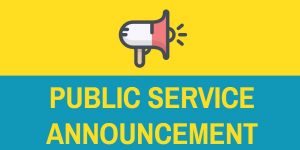
Managing your debt can be tough, but it’s something many people face when they’re going through financial difficulties. The good news is that with the right strategies, you can take charge of your debt and ease your financial burden. Let’s check out some practical strategies to manage your debt effectively.
Understanding Your Debt
First things first, you need to understand the full scope of your debt situation. Make a list of all the money you owe, whether it’s credit card balances, loans, or mortgages. Seeing the big picture will help you make informed decisions about how to tackle it.
Creating a Debt Repayment Plan
Now that you know how much you owe, it’s time to create a plan to pay it off. Start by prioritizing your debts. Focus on those high-interest debts first because they’re the ones that can end up costing you more in the long run. There are a couple of popular methods you can try: the debt avalanche and the debt snowball.
a) The Debt Avalanche Method
With the debt avalanche method, you pay off the debt with the highest interest rate first. Once that’s paid off, you move on to the next debt with the highest interest rate. This approach can save you more money over time.
b) The Debt Snowball Method
The debt snowball method, on the other hand, involves paying off the smallest debts first. As you eliminate these smaller debts, you gain momentum and motivation to tackle the larger ones. While this method may not save you as much money in interest, it can provide a sense of accomplishment and keep you motivated.
Negotiating with Creditors
If you’re having trouble meeting your debt payments, don’t be afraid to reach out to your creditors. You might be able to negotiate better terms with them. For example, you can ask for a lower interest rate, request the removal of fees or penalties, or work out a payment plan that fits your budget. Just make sure you have a good understanding of your financial situation and what you can realistically afford before talking to them.
Avoiding Debt Traps
It’s important to be aware of potential debt traps that can hinder your progress. Payday loans with exorbitant interest rates and credit card cash advances are examples of such traps. It’s best to steer clear of these options and focus on your debt repayment plan instead.
Staying Committed to Your Goals
Finally, staying committed to your goals is crucial in managing your debt effectively. It’s not always easy, but maintaining discipline and sticking to your debt repayment plan will pay off in the long run. Celebrate small victories along the way to keep yourself motivated.
By following these strategies, you can regain control of your debt and reduce the financial stress in your life. Remember, managing debt takes time and effort, but with determination and a solid plan, you can achieve financial freedom. You’ve got this!











One Response
This was helpful.